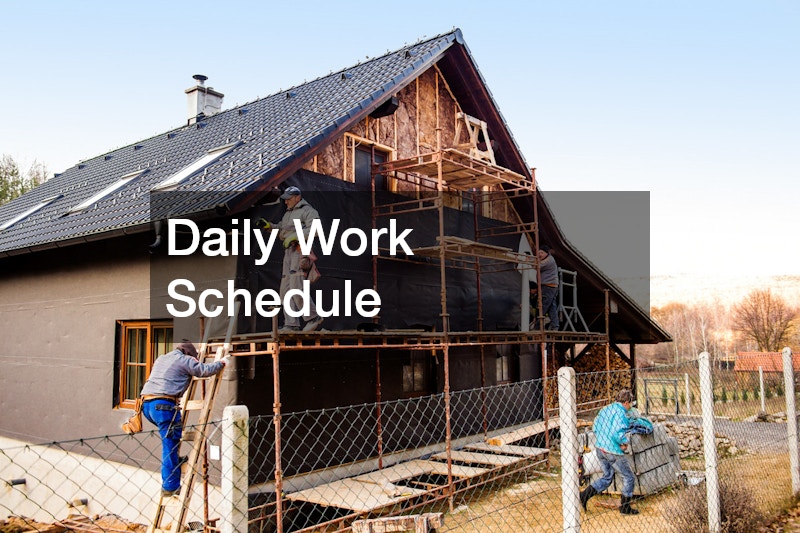Planning a roofing project can be overwhelming, especially when you’re uncertain about what to ask your potential contractor. Understanding the right questions can make a significant difference in the success and smoothness of your project. This article outlines the top questions to ask roofers before starting your project.
Years in Business
Inquire about how long the roofer has been in business to gauge their experience and reliability. A contractor with several years in the industry is likely to have a stronger knowledge base to tackle various roofing challenges.
Experienced roofers can also provide insights into effective solutions tailored to your specific needs.
When a roofer has been operating for over a decade, it’s a good indicator of their capability and trustworthiness. Longevity in the business often correlates with a track record of satisfied customers and successful projects. Moreover, experienced roofers are typically more adept at predicting potential issues before they arise.
Although new companies may offer fresh perspectives, established ones bring proven methods to the table. Such experience can be a decisive factor in ensuring your project is completed efficiently and to a high standard. This part of your conversation will help you assess the roofer’s expertise in handling projects like yours.
Licensing and Certifications
Verify if they hold the necessary licenses and certifications required by your state or locality. This is essential to ensure they meet the legal standards for running their business and performing the work. Licensed contractors are also likely to be more knowledgeable about the latest safety codes and regulations.
The importance of certifications cannot be overstated as they often represent a roofer’s commitment to continued education and quality assurance. For example, certain certifications from manufacturers can indicate a roofer’s advanced industry training. This commitment reflects their dedication to providing high-quality services that match industry advancements.
Discussing credentials can also uncover whether the roofer is covered by insurance, protecting both you and them financially in the event of accidents. This is crucial for avoiding potential liabilities that could arise during the project. Ensuring your roofer is properly certified and licensed provides peace of mind that your roofing project is in capable hands.
Detailed Pricing Breakdown
Request a comprehensive estimate that includes materials, labor, and any additional costs. A transparent breakdown ensures there are no hidden costs or unexpected financial burdens during the project. This can be critical for budgeting purposes, allowing you to prepare financially for each stage of the roofing process.
Understanding the pricing structure also helps in comparing bids from different contractors. Each aspect from material quality to labor charges requires clarity for a proper evaluation. By dissecting each component of the estimate, you can make informed decisions regarding the cost-effectiveness of hiring a specific roofer.
It is also important to request clarification for costs that seem too high or too low compared to other bids. Items like disposal fees or permit costs should not be overlooked and must be itemized. With this comprehensive view, you can balance affordability with quality to choose a roofer that suits your financial and project needs.
Weather and Other Delays
Understand how weather or other unforeseen events might impact the timeline. Factors like rain and storms can introduce delays, making it critical to factor these into the projected schedule. Contingency plans for weather-induced changes reflect the contractor’s foresight and experience.
Discuss the contractor’s policy on weather disruptions and their process for adjusting timelines. A contractor experienced with local climate conditions is likely to manage these delays more effectively. Knowing this information in advance enables both parties to remain flexible yet prepared for adjustments.
This dialogue is crucial not just for understanding delays but also for planning accommodations around them. Regular updates and honest communication can facilitate smoother transitions when altering timelines. This foresight minimizes unexpected disruptions, ensuring a coordinated completion schedule.
Daily Work Schedule
Discuss the expected daily work hours to prepare for any disruptions. Coordination on work hours helps you plan around noise and activity that might affect your household. Knowing the daily routine allows for strategic alterations to personal schedules and other obligations.
Aligning on a work schedule prevents misunderstandings regarding availability and access to the property. This is particularly important for families and those who work from home, emphasizing respect for privacy and convenience. A clear work schedule builds a cohesive working relationship throughout the project span.
Safety considerations may also dictate specific work hours, which should be openly discussed with your contractor. Punctuality and adherence to a set schedule reflect a roofer’s professionalism and efficiency. By establishing agreed-upon work hours, you maintain expectations of daily project progress.
Asking the right questions before starting your roofing project can help prevent misunderstandings and ensure a smoother process. By addressing these crucial areas with your roofer, you can make more informed decisions and engage in a successful roofing project. The initial investment of time in these discussions can pave the way for a gratifying outcome and enduring satisfaction with your roof installation.
.




